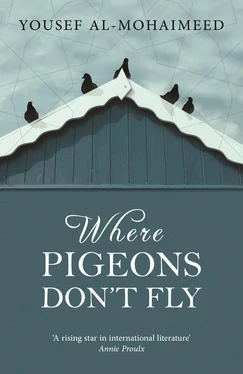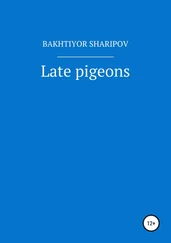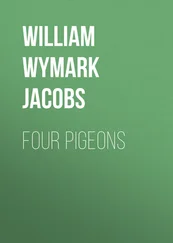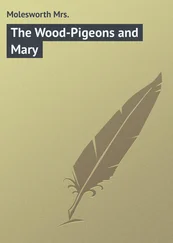That first message, sent fluttering into the skies over Mecca, Riyadh, Ta’if and Qaseem by Suleiman and his zealous companions, made reference to part of a prophetic hadith that contained the following saying of the Prophet, upon him be the blessings and peace of God: ‘The religion of God shall only be established by he who is secured on all sides.’
Or, as the pamphlet explained: The story of this hadith, for whose sake we have come to divide ourselves into groups, is that the need to keep aloof from those who deny the oneness of God, to expose their enmity and cleave to the truth, was seen by some as an embarrassment and a hardship, an obstacle to spreading the faith that repelled the common people. Some were lax in applying this principle, while others abandoned it entirely. But we say that it is not as they believed, for God has lifted the embarrassment from us and adjured us to this principle, for if there were any embarrassment in it he would not have so commanded us. Listen to His exalted words:
‘And strive in His cause as you ought to strive. He has chosen you, and has imposed no difficulties on you in religion; it is the faith of your father, Abraham. It is He who named you Muslims, both before and in this revelation; that the Messenger may be a witness for you.’
If God Himself has commanded us to strive and made it clear to us that there is no embarrassment in it, and that this is the faith of Abraham, then know that adherence to this principle — striving and following the faith of Abraham — is what sets the true Muslim apart from the pretender.
And so in their eyes all people were pretenders and hypocrites, and it was their duty to exhort them, unembarrassed, to wash their hands of those who denied God’s oneness, for if they did not, they were of them. The faith was not to be established through sycophancy and silence but by cleaving to the truth and forbearance in the face of suffering.
The initial wave of arrests sent Suleiman fleeing into the desert in the company of the group’s leader, the two of them wandering the wastes for two weeks living on lizards captured in their burrows. Forty days later, after most of the group’s members had been released from prison and after the second wave of arrests prior to the assault on the Grand Mosque, Suleiman decided that things were now in deadly earnest. No longer was this a matter of a pellet gun puncturing the heart of a loudspeaker, as his brother had done in Muraidasiya, nor was it a handful of boys demonstrating outside the governor’s palace in Buraida. It had gone beyond mere jail terms: they now faced execution by the sword.
So Suleiman began to shun the group. Like black hawks, accusations of neglecting his duty to the cause eventually caught up with him, but he had vanished from sight, returning to a tiny burrow in Umm Sulaym before deciding to escape to Buraida. He would never leave again, he decided; he would be buried there. That was before the two security agents took him away from the Jurida marketplace to lose four years of his youth in a cold-walled prison. Yet this was certainly more forgiving than standing in Justice Square, waiting for the rattle of a sharp sword.
And so Suleiman’s fear saved him. He did not join the Brothers in their assault on the Grand Mosque at dawn on the first of Muharram, the first day of the fourteenth century after the Prophet’s flight.
— 32 —
THE NEXT TIME AROUND Fahd set the alarm on his phone to six o’clock, but only came to when he heard Saeed’s shout beside him, as though issuing from the depths of a cave.
‘Your mother called on the landline. She says your mobile’s off.’
Fahd quickly washed his face, put on his robe and throwing his headscarf over his shoulder said, ‘I’m late, I’ve got an urgent appointment. If she calls, say I have a meeting at the university.’
Before closing the door he looked back in. ‘Saeed! Tell her I’ve gone to enrol in a summer course.’
‘It’s almost sunset, you lunatic!’ Saeed shouted. ‘What university?’
He shut the door behind him, started the car and set out for Granada Centre in East Riyadh, towards the heavenly face of his beloved, the face that had shaken his weak and ever-eager heart to the core.
Switching on his mobile, he found three messages.
From Lulua: Mother’s asking for you. Where are you?
From Thuraya: All I ask is a word, to say you’re mine and you miss me. Answer me, Syrian!
From Tarfah: Where are you? I’ve been waiting an hour for your call. Shall I head out? It’s a long journey from Suwaidi, sweetheart .
He called Tarfah and told her to set off. ‘Sorry baby, I overslept.’
‘So, shall I bring anything?’ she asked with delicious playfulness.
When he burst out laughing she cut him off. ‘No, really. What do you long for most?’
‘Your heart!’ he replied passionately.
‘Trickster. Hustler,’ she cried in exasperation. ‘You leave me no way out.’
‘Your mouth, then.’
She sighed deeply and contentedly. ‘Now I believe you.’
When he started the car Rashed al-Majed was singing Oh, Don’t Keep Me from Him! on MBC FM and he thought of Noha, her tears and her choked and hesitant voice. He stopped at a petrol station and asked the attendant to fill his tank while he rushed into the little shop and bought a box of Fine tissues and a couple of bottles of water picked from the back of the refrigerator.
Tarfah described the different entrances to the vast Granada Mall: ‘Come to Entrance Two. Turn in off the Eastern Ring Road and it’s next to Dr Keif. You’ll see the main entrance in front of you with a picture of Marah Oasis hanging over it.’
‘I know the Extra Café at the end on the left,’ he replied. ‘Is it before that?’
‘Well, of course it is, and before Paris Gallery. I’m not talking about Entrance One, OK? That’s the one by Costa Coffee and Espresso. I’m talking about Entrance Two. You turn in off theEastern Ring Road and if you look right you’ll see Dr Keif. The entrance right next to it.’
As he turned at the traffic lights at the Imam Street exit he looked left and saw the green Dr Keif sign. It was nearly eight o’clock. He took a right, then another at the small roundabout facing the main entrance. Passing Entrance Two he saw that it really was a forgotten spot: nobody was about.
He called her before he stopped the car and she answered eagerly. ‘Where are you?’
She had gone in via the main entrance then headed into the VaVaVoom Beauty Salon, walking out again a few minutes later and going for a wander that took her past the family section of Starbucks, where she ordered two small cappuccinos. She walked to the main hall and turned right as if towards the up escalator, but marched straight past it in the direction of Etam. Her black bag swinging, she emerged from Entrance Two.
He took the Starbucks cups from her and slowly moved off. He asked her about the unusually heavy crowds around the main entrance.
‘Maybe because it’s a Wednesday,’ she said.
They crossed the small roundabout and doubling back to escape the congestion around the mall, headed out to the highway.
Two days earlier, she said, she had gone with her family to an event at a hotel along Qaseem Road in a part of town full of vast building developments, hotels and small farms. She fell silent then suggested they go there. He drove on, past the petrol station on the Medina Road and past Musafir Café and Half Moon Café, then as Yamama College came up on the left he turned right off Quwa al-Amn Bridge and they entered the moonlit night. There were high, long walls with massive locked gates.
‘If only we could go inside one!’ he whispered.
Читать дальше












